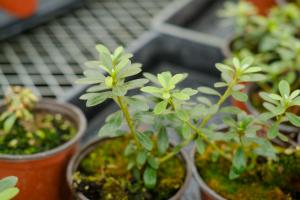Can Trees Decompose Dead Animals and Plants?
Trees are a vital part of our ecosystem. They produce oxygen, filter pollutants, provide shade and shelter, and support a wide range of biodiversity. Trees also have an important role in the decomposition of dead animals and plants in the environment.
The Role of Trees in Decomposition
Trees play an essential role in the decomposition of dead animals and plants through a process known as "litterfall." Litterfall is the term used to describe the falling of leaves, twigs, and other organic matter from trees onto the forest floor. Once on the ground, this organic matter forms a layer called the "litter layer."
The litter layer is an important part of the soil ecosystem, providing nutrients for the soil, supporting microbial activity, and acting as a habitat for small animals. As the litter layer decomposes, it releases nutrients back into the soil, making them available for new plant growth.
Decomposition of Dead Animals and Plants
Dead animals and plants contribute to the litter layer and the decomposition process. As they decompose, they release nutrients into the soil, supporting new plant growth. This process is known as "biodegradation" and is essential for maintaining the health of the forest ecosystem.
However, the decomposition process can take a long time, especially for larger animals such as deer and bears. In some cases, the dead animals may become a food source for scavengers such as vultures and coyotes, speeding up the decomposition process. But in other cases, the carcass may remain intact for a long time, slowing down the process of decomposition.
Tree Species and Decomposition
The species of trees in a particular area can also have an impact on the decomposition process. Some tree species, such as oak and maple, have a higher rate of litterfall and decomposition, while other species, such as conifers, have a lower rate of litterfall and decomposition.
Additionally, the specific microorganisms that are present in the soil can also affect the rate of decomposition. Some microorganisms are better at breaking down certain types of organic matter than others, and the composition of the soil can also impact the rate of decomposition.
The Importance of Decomposition
The process of decomposition is crucial for the health of the forest ecosystem. It helps to recycle nutrients and maintain the balance of the soil ecosystem. Without decomposition, the soil would eventually become depleted of nutrients, and new plant growth would be limited. Additionally, the accumulation of dead organic matter could create a fire hazard.
So, while trees may not be able to decompose dead animals and plants directly, they play an important role in the decomposition process through the production of organic matter and the support of microbial activity in the soil. By doing so, they help to support the health and vitality of the forest ecosystem.
Conclusion
Trees are essential for the health of our planet in many ways, including their role in the decomposition of dead animals and plants. Through the production of organic matter and the support of microbial activity in the soil, trees help to recycle nutrients and maintain the balance of the soil ecosystem. Therefore, it's important to protect and preserve our forests to ensure that they can continue to support biodiversity and maintain the health of our planet.

 how many times do yo...
how many times do yo... how many planted tre...
how many planted tre... how many pine trees ...
how many pine trees ... how many pecan trees...
how many pecan trees... how many plants comp...
how many plants comp... how many plants can ...
how many plants can ... how many plants and ...
how many plants and ... how many pepper plan...
how many pepper plan...




























